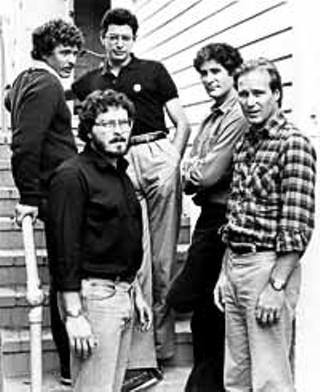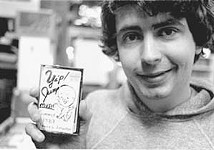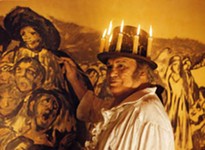The Big Thrill
Austin Film Festival honors writer/director Lawrence Kasdan
By Will Robinson Sheff, Fri., Oct. 12, 2001

Lawrence Kasdan knows what it's like to succeed in film: He got his enviable first gig penning Raiders of the Lost Ark for Steven Spielberg and George Lucas, then went on to write and direct the likes of Body Heat and The Big Chill. Lawrence Kasdan also knows what it's like to utterly, abjectly fail: His 1994 Kevin Costner vehicle Wyatt Earp was a box-office bomb and popular critical whipping boy -- it even scored an infamous Golden Raspberry as one of the worst pictures of the year. For Kasdan, though, these are merely the hazards of maintaining a long career of "trying to do as many different things as possible." His adventurous predilections, over the course of that long career, have seen the writer/director mining genres as diverse as broad-stroke black comedy (I Love You to Death) and subtle character study (The Accidental Tourist).
Though Kasdan's most successful scripts have been for commercial fare like Raiders, the second and third Star Wars films, and The Bodyguard (a script he'd originally written in the Seventies for Steve McQueen), as a director he's perhaps best known for earnest, intensely personal films like The Big Chill and Grand Canyon, both of which deal with the fears and disillusionment of the aging baby boomer generation. Even in less autobiographical genre exercises like Body Heat and Silverado, though, Kasdan consistently demonstrates his signature knack at zeroing in on the personal.
The Chronicle recently talked to Kasdan -- who will be awarded this year's "Distinguished Screenwriting" award by the Heart of Film Screenwriters Conference and Austin Film Festival -- about the trauma of watching one's script get adapted, the challenge of translating a personal vision through words to film, and the unpredictable nature of success.
The Austin Chronicle: There are more directors than ever these days who are seen by the general public as stars in their own right. Do you see a time in the future when the profile of screenwriters -- the people who actually write films -- is as elevated?
Lawrence Kasdan: In a way it's more elevated than it was when I came into the business 20 years ago. I don't remember this kind of award back then. But with the public: no. With the media: not really. It's a slow progress.
AC: Do you consider yourself to be a director primarily, or a writer who directs to protect his scripts?
LK: I was a director who wrote to become a director. The idea was always to direct these movies and write 'em, to just create the whole thing. At the time I was trying to break in, the late Sixties and early Seventies, a lot of writers were getting the chance -- Francis [Ford Coppola] and Paul Schrader and John Milius -- and I thought "Well, I can write, so maybe I'll be able to write my way into it." And it worked. ... I always wanted to be a movie director, but the thing that drove me so fast toward it was that I hated being a screenwriter for other people. And I had good luck with the people who directed my movies -- Irvin Kershner and Steven Spielberg and Richard Marquand, who died, and Michael Apted's a really good director -- but I was always completely frustrated by what they did. It's not the movie you have in your head when someone else directs.
AC: You've been involved with a large number of box-office hits and a few films that didn't do as well in theatres. Have you found any rules at all, at the writing stage, that predict whether a film might succeed?
LK: [Laughs] If I did, I would stick to those rules! But there are none. And there's so much about timing and the zeitgeist and what's happening in the culture on the weekend that you come out. Now more than ever, it's a one-weekend enterprise, and, some of these movies, if you can sell 'em and have a big-ass opening weekend, the fact that everyone hates them doesn't even matter -- you'll have a huge gross anyway. There has never been a connection between quality and box-office success. When you write and direct, like I do, if you don't do what you like you're lost, you have nothing to draw on. So you hope that, every once in a while, what you like corresponds with what popular taste is. But it doesn't happen that often.
AC: What's the most important piece of advice you'd give to screenwriters starting out?
LK: A lot of people want to make movies, so that means it's really hard to get in. And it is just as good a job as you imagine it to be. It's not a disappointment. It's fantastic: varied and fun and stimulating. And the thing that separates the people who get to do it and the ones who don't is the ones who don't quit. It's really a question of not quitting. The beating you take when your movies come out is nothing compared to when you're starting and no one wants you. That's the hard thing, because they're really saying "your work has no value." So you have to be a champion for yourself.










